Conferencia
LHCb Spain Meeting
|
Conferencia
Peregrinando: Traxectorias internacionais nas matemáticas e na física
O IGFAE e o CITMAga (Centro de Investigación e Tecnoloxía Matemática de Galicia) unen forzas para organizar un encontro co que se pretende promover a internacionalización das e dos estudantes nas primeiras etapas da carreira investigadora. Oito relatores con experiencia investia compartirán as súas propias experiencias durante a xornada. O rexistro é gratuíto, e pode formalizarse ata o venres 13 de decembro nesta ligazón. |
Dissertation
PhD dissertation | Medidas da producción de partículas cargadas en sistemas de colisión pequenos no experimento LHCb
Directores: Abraham Gallas Torreira, Ricardo Vázquez Gómez |
Dissertation
PhD Dissertation | Nova física de centelleo na TPC presurizada de NDGAr no detector cercano de DUNE
Directores: Diego González Díaz e Justo Martín-Albo Simón. |
Dissertation
Transfronteirizas. Conversas de arte e ciencia. Con Héctor Álvarez e Paula Quintas
A sede do IGFAE acolle unha nova edición do ciclo Transfronteirizas: conversas de arte e ciencia. Nesta ocasión, o investigador Héctor Álvarez e a artista Paula Quintas compartirán co público asistente o proceso de creación do seu proxecto Mundo Quark. Danza Cuántica. Esta iniciativa artística parte do Modelo Estándar para representar as partículas elementais e as interaccións entre elas a través da danza e o movemento corporal, explorando as interseccións entre ambas disciplinas. |
Dissertation
Conference by Jean Iliopoulos | \"From many Models to One Theory: 50 Years that changed Fundamental Physics\"
The Auditorio Abanca in Santiago de Compostela will host on Wednesday 27 November( 20.00 hours), the conference by the Greek-French physicist Jean Iliopoulos, one of the three authors (together with Sheldon Glashow and Luciano Maiani) of the GIM mechanism, the theoretical proposal which, in 1970, postulated the existence of the charmed quark. Iliopoulos will tell the audience how the discovery he promoted from a theoretical perspective brought about a radical change in the perception of the fundamental structure of matter, leading to a new vision of the nature of the fundamental forces. After graduating from the Polytechnic School of Athens, Iliopoulos (Kalamata-Greece, 1943), and working at institutions such as CERN and Harvard, he spent much of his career at the *École normale supérieure de Paris, being one of the founders of its prestigious Laboratory of Theoretical Physics, which he directed between 1991-1995 and 1998-2002. He has been a member of the French Academy of Sciences since 2002, and received important awards such as the Dirac Prize (2007) together with his colleague Luciano Maiani, and the European Physical Society Prize in High Energy and Particle Physics (2011), together with Maiani and Glashow. |
Conferencia
Nerd Nite | A Revolución de Novembro de 1974
A Nave de Vidán acolle unha nova edición da NerdNite enmarcada na Semana da Ciencia do IGFAE. Nesta ocasión, e baixo o título 50 anos da Revolución de Novembro, Jorge Mira, Víctor López e Bernardo Adeva farán un percorrido pola historia do estudo dos quarks, con especial atención ao charm, as súas bases teóricas e as grandes implicacións que supuxo a súa detección case simultánea dos equipos de Ting e Richter no ano 1974. |
Dissertation
Marta Macho: Mujeres y ciencia: ¿la ecuación funciona?
La matemática y divulgadora Marta Macho Stadler (Bilbao, 1962) ofrecerá el martes 26 de noviembre en Santiago de Compostela la conferencia “Mujeres y ciencia: ¿la ecuación funciona?”. La actividad tendrá lugar en el Aula Magna Ramón María Aller Ulloa de la Facultad de Matemáticas. Será abierta ao público, con entrada libre y gratuita hasta completar aforo. En esta charla, Marta Macho abordará algunas claves sobre la escasa presencia femenina en algunas disciplinas científicas y tecnológicas, y sobre cómo esta brecha se empieza a mostrar desde edades muy tempranas. Profundizará en los debates alrededor de la capacidad, preferencias y diferencias entre hombres y mujeres, y el origen de estas divergencias. En este contexto, y a través de la reflexión, durante la conferencia se procurará comprender mejor la situación actual en el ámbito STEM, y buscar posibles medidas y acciones para fomentar los cambios que se precisan. |
Conferencia
Ciencia Singular | Xornada de portas abertas
A Rede de Centros Singulares de Investigación da Universidade de Santiago de Compostela abrirá, un ano máis, as súas portas á cidadanía o sábado 23 de novembro, co gallo da oitava edición de Ciencia Singular. A cita conta con algunhas novidades nesta ocasión; entre elas, a incorporación do CRETUS (Centro de Investigación Interdisciplinaria en Tecnoloxías Ambientais), que se sumou este ano a CiQUS, CiMUS, CiTIUS e IGFAE como membro da rede CIGUS da Xunta de Galicia, que acredita a calidade e impacto da investigación destes centros. Desde as 10.00 da mañá e ata as 20.00 horas, persoas de todas as idades percorrerán as instalacións do CiQUS, CiMUS, CiTIUS, IGFAE e CRETUS para coñecer, da man do persoal investigador, o labor científico punteiro que se desenvolve neles día a día. Para participar nas actividades é preciso un rexistro previo, que pode formalizarse na páxina web https://cienciasingular.usc.es/ desde o próximo martes 19 de novembro ás 16.00 horas. Nesta páxina estarán accesibles os programas e horarios da xornada. |
Conferencia
Mini-course on Krylov complexity in quantum mechanics
The time evolution of states and operators in quantum mechanics takes place in a subspace of the total Hilbert space known as the Krylov subspace, which can determined by means of the Lanczos algorithm. In this Krylov subspace one can define the so-called Krylov complexity as a measure of the information scrambling in quantum systems. In these lectures the basic notions underlying this technique will be explained , as well as some recent developments on universal bounds to operator growth and chaos in the time evolution of quantum mechanics. |








